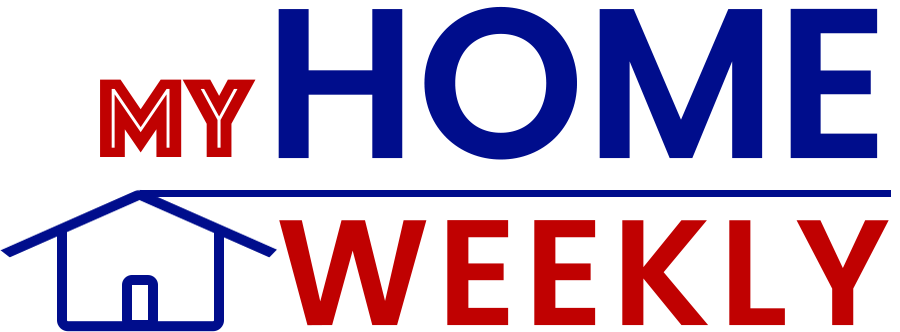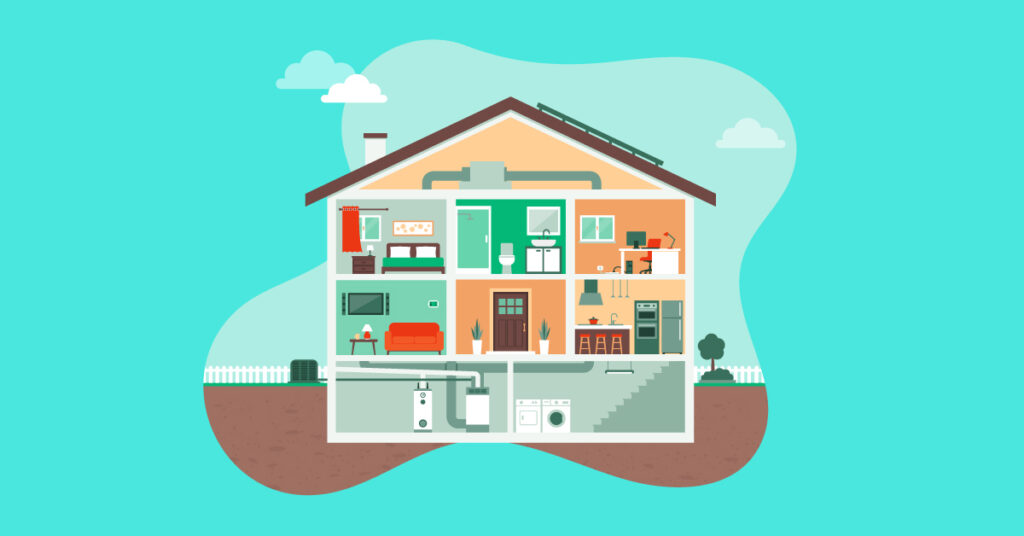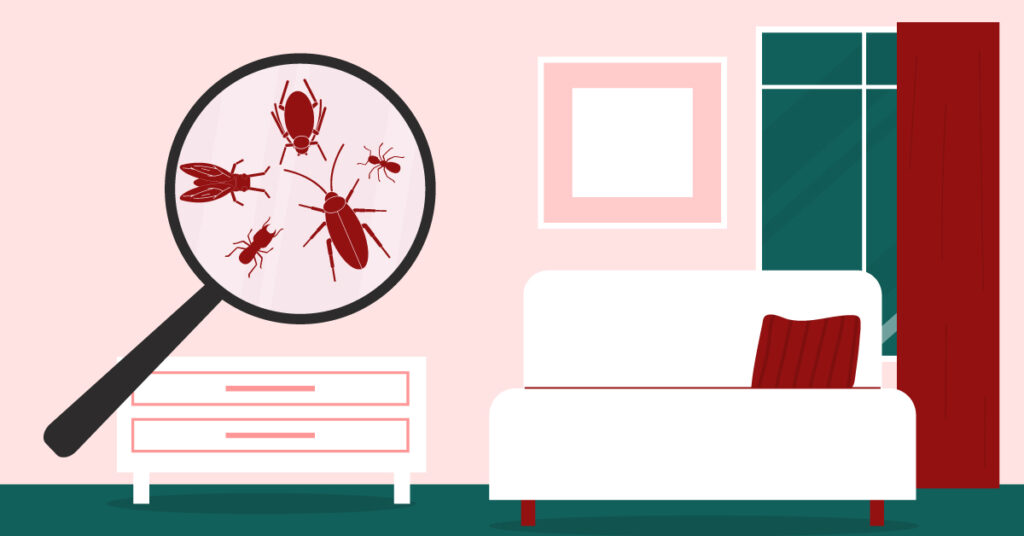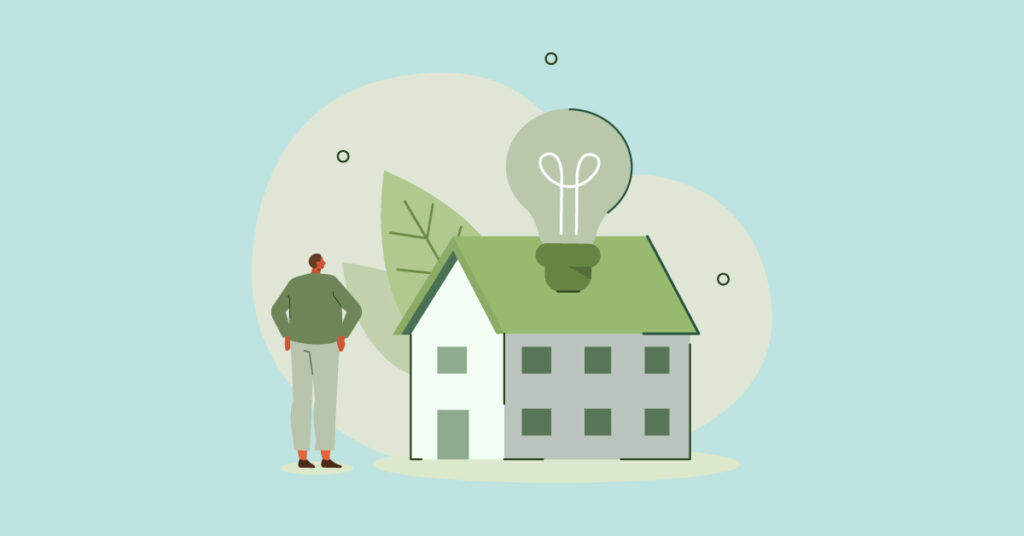HVAC (heating, ventilation, and air conditioning) systems have grown in popularity over the past few years. That’s because of the increasing interest in creating smart homes, and more people are gaining greater attention to their indoor air quality. These systems are also efficient in fighting bacteria and viruses (e.g., coronavirus) in homes, workplaces, and business properties.
Definition of HVAC
HVAC is short for Heating, Ventilation, and Air Conditioning. It refers to the systems that provide clean, safe, and comfortable air in residential and commercial properties. They help maintain indoor air quality by filtering and cleaning the air flowing from outdoor to indoor spaces, keeping homeowners and their families healthy.
An HVAC is also a system responsible for cooling and heating residential and commercial buildings. They keep homeowners warm and cozy during cold winters and provide a fresh and cool feeling during hot summers. HVAC systems maintain comfortable humidity levels to protect home and commercial property owners’ valuables from moisture-related issues.
How Do HVAC Systems Work?
HVAC systems are made to move air while heating or cooling indoor spaces. Their operation begins with ventilation, which provides residential and commercial buildings with fresh air.
Natural ventilation transfers cool and fresh air from open doors, windows, or cracks and leverages pressure differences to force the air into an indoor space. The cool air drawn in is cleansed and detoxified through the systems’ filters, making it safe to breathe.
The fresh air forces warm air out of a building during summer. In the winter months, the HVAC’s heating system generates heat to help warm a building’s indoor spaces. The warm air is either created or captured by a home’s heat pump, air conditioner, and furnace. After that, the ductwork and blower help move the cold or warm air throughout a building.
Since most homes and offices are tightly sealed, the ventilation process will require filters, blowers, ducts, and fans. Each component may work separately, for example, a radiant unit fitted with window air conditioning systems. However, homeowners may find combined systems like AC and central heating systems that circulate air through internal ducts in an indoor space using a single blower.
Despite HVAC units having different sub-systems, they function as a whole. The heating and cooling systems work interchangeably, and all the processes and parts that help HVAC units function usually overlap.
HVAC Basics
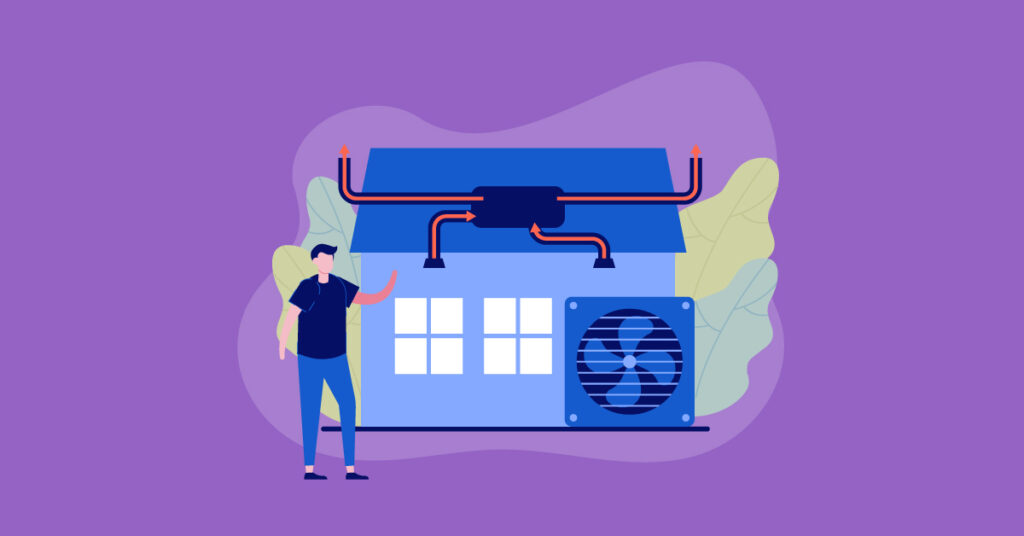
An HVAC system serves multiple roles rather than just cooling or warming an indoor space. It improves indoor air quality by filtering and cleaning incoming air. These units remove smoke, dust, pathogens, and other particulates in the process, making the air safe and comfortable for everyone in a building to breathe.
Although HVAC systems come in various types, they all start with the basics:
Ventilation
Ventilation involves the movement of fresh air between the outdoor and indoor spaces. The HVAC equipment consists of attached systems that facilitate air processing and transfer throughout a building and the HVAC system itself. These attached systems include ductwork, wall, ceiling, and floor vents, and other ventilation shafts like PVC ventilation or chimney flues for indoor HVAC equipment.
Heating
Most homes and offices have a furnace to keep everyone warm and comfy during cold seasons. The furnaces are available in varied types and rely on different fuel sources. They include:
- Electric furnaces
- Natural gas furnaces
- Oil furnaces
- Propane furnaces
- Geothermal furnaces
Natural gas furnaces are pretty common despite the high gas costs. Electric furnaces are more popular in particular regions experiencing mild winters as they don’t generate as high heat as natural gas furnaces.
HVAC heating equipment also features a blower motor that helps transfer air throughout a home or office. Most homes have forced-air systems in which heat moves throughout the indoor space via the blower’s ductwork.
Cooling
HVAC systems usually have one or several air conditioners, especially in commercial properties. They also have heat pumps that work like air conditioners as they can pump cool and warm air throughout a building.
Heat pumps come paired with electric furnaces that supplement their ability to supply sufficient heat. Air conditioners come combined with gas furnaces to help cool the systems as they generate intense heat.
How Long Do HVAC Systems Last?
Excellent HVAC systems can last for 15-25 years, but this will depend on your location. For instance, more temperate climates can cause minimal wear and tear on the HVAC system as the unit isn’t overworked. Homeowners can expect their systems to last longer than those living in severely cold regions where HVAC systems must operate 24/7.
FAQs
How Do Air Conditioning and HVAC Differ?
An air conditioning unit only cools a building’s indoor space, whereas an HVAC system cools, heats, and ventilates indoor spaces. AC forms the last part of an HVAC system and helps to fulfill the cooling roles of the HVAC.
What Are the Various HVAC System Types?
HVAC systems exist in four different types, including:
- Heating and cooling split systems: They have two distinct units, one for heating and the other for cooling. These units come with outdoor and indoor units that are easily distinguishable.
- Hybrid split system: These HVAC systems perform similar functions as split systems. However, they have a hybrid heating system and help reduce energy costs.
- Mini-split (Duct free) HVAC Systems: They’re expensive but offer many benefits for specific user needs and applications. These systems are often installed in distinct areas of a building that require cooling and heating.
- Packaged HVAC system: They have everything in a single system, including an evaporator, condenser, and compressor. Packaged HVAC systems are usually installed on the roof or adjacent to the foundation and satisfy heating and cooling needs.
Do I Need a New HVAC System?
Here are four signs you need a new HVAC system:
- You want to reap all the system’s benefits like better indoor air quality, a warmer home during winter, and cooler spaces in summer.
- The current HVAC system is over a decade old, meaning that it’s not working as required.
- Your HVAC consumes a lot of electricity, increasing monthly energy bills. It’s a sign that the HVAC system is deteriorating.
- Replacing a new system is cheaper than repairing an old one.
- The system produces loud noises when operating.
How Much Does It Cost To Install a New HVAC System?
The cost of an HVAC system ranges from $4,850 to $9,400. Replacing a new HVAC system costs between $5,000 and $10,000, with the average cost being $7,000. It means homeowners can expect to pay $25-$60 per square foot of the area covered. New HVAC installation ranges between $1,500 and $12,500.
Contact a Professional for All Your HVAC Needs
HVAC systems are a worthwhile investment for any property owner. They help cool indoor spaces during hot summers and cool them in winter, keeping everyone inside comfy. In addition, these systems enhance indoor air quality by filtering dust and other harmful particulates, keeping your family and workers safe.
If you need help installing a new HVAC or maintaining and servicing an existing unit, contact us now. We’re a leading company providing exceptional HVAC products and services to keep your property comfortable and safe.
Related: How To Change An HVAC Filter And Improve Indoor Airflow
